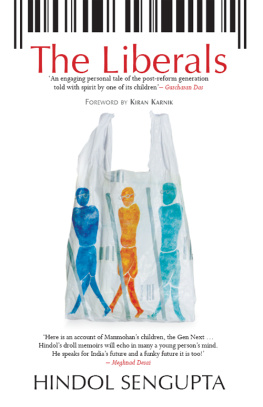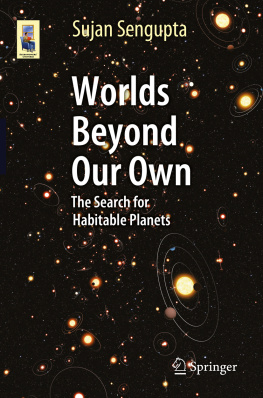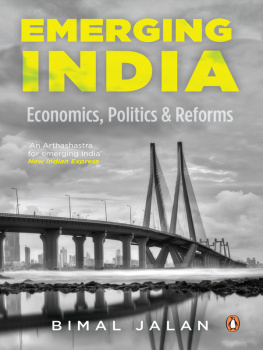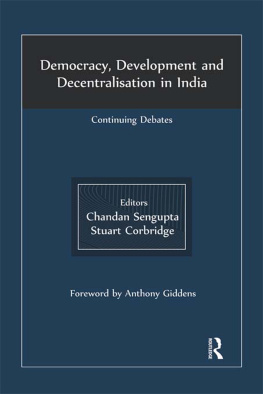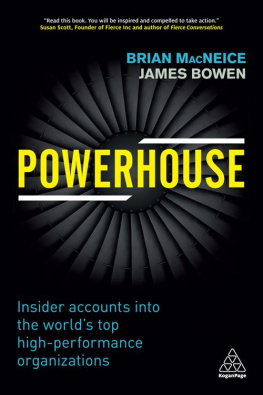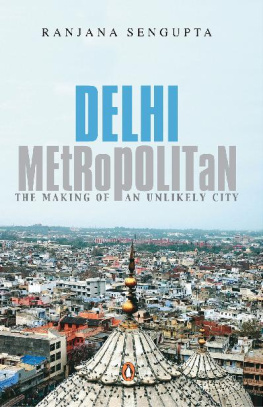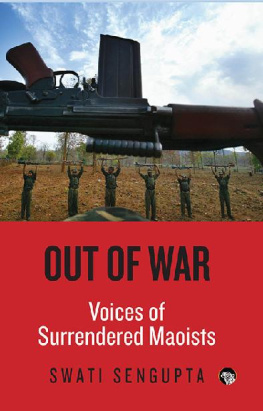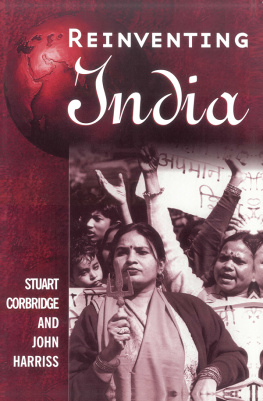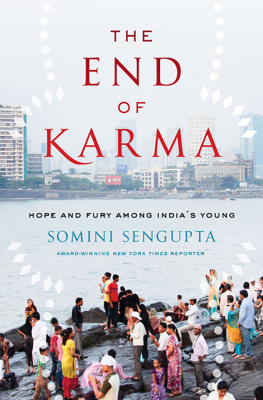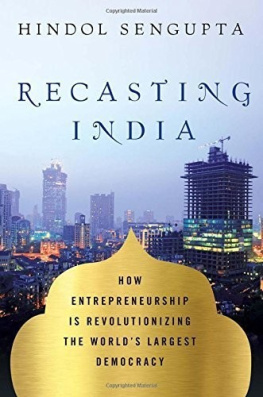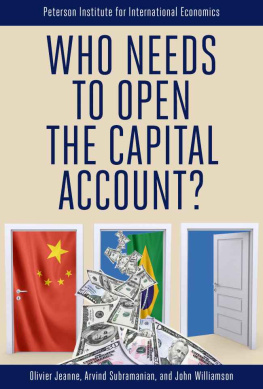Sengupta - The Liberals
Here you can read online Sengupta - The Liberals full text of the book (entire story) in english for free. Download pdf and epub, get meaning, cover and reviews about this ebook. City: India, year: 2012, publisher: HarperCollins Publishers India, genre: Religion. Description of the work, (preface) as well as reviews are available. Best literature library LitArk.com created for fans of good reading and offers a wide selection of genres:
Romance novel
Science fiction
Adventure
Detective
Science
History
Home and family
Prose
Art
Politics
Computer
Non-fiction
Religion
Business
Children
Humor
Choose a favorite category and find really read worthwhile books. Enjoy immersion in the world of imagination, feel the emotions of the characters or learn something new for yourself, make an fascinating discovery.
The Liberals: summary, description and annotation
We offer to read an annotation, description, summary or preface (depends on what the author of the book "The Liberals" wrote himself). If you haven't found the necessary information about the book — write in the comments, we will try to find it.
Sengupta: author's other books
Who wrote The Liberals? Find out the surname, the name of the author of the book and a list of all author's works by series.
The Liberals — read online for free the complete book (whole text) full work
Below is the text of the book, divided by pages. System saving the place of the last page read, allows you to conveniently read the book "The Liberals" online for free, without having to search again every time where you left off. Put a bookmark, and you can go to the page where you finished reading at any time.
Font size:
Interval:
Bookmark:
I have so many people to thank across twenty years that this will never be enough. But let me try.
I must start by thanking all those people who gave me a chance. One of the greatest things of growing up in the last twenty years has been living through an age when, finally, and for the first time, everything seemed possible. There were people willing to give you, me, a chance.
My parents Ashish and Chinmoyee, no matter what I have done, or failed to do, their incessant cheering is my constant shield. All that I am and can ever hope to be is because of them. Ma, baba, you guys should know that I can never match up to your grace and civility but I shall continue to try.
Shweta Punj, impossible to describe why and how, and how much, suffice it to say that I am indebted to her for her being her. Shweta, this is a thank you for knowing, instinctively, that this is just the beginning.
Lord Meghnad Desai, I cannot thank him enough for the affection he gave me and this book, providing me much-needed confidence more than a year before The Liberals was released. I can never hope to repay this debt.
Kiran Karnik for the sheer sense of affection, the time, the effort and all the encouragement. Thank you very much.
Gurcharan Das, who has been such a reassuring voice in so many things I have done and in this one too, I owe him a big thank you.
Santosh Desai for calling up to sayI am really enjoying your bookand continuing to say it. Such an unforgettable boost of confidence.
Aman Nath, for being excited about this book and egging me on to do more for it! Sotto voce, he was telling me not to be such a Bengali about thingsand get some of the Punjabi can-do spirit. Thank you, Aman.
V. Raghunathan for his sheer energy and infectious enthusiasm and for saying some of the nicest things about the book.
Rama Bijapurkar for letting me drop into her office out of the blue, for the chai, gossip and for reading the book. Thank you.
To an assorted bunch of very different peoplefrom Akshay Kumar to Amar Singh to Mamata Banerjeehad I not met them, this book would have never happened. Especially Amar Singh, I will never forget his lesson in what love is in Calcutta.
Saugata Mukherjee, the very first believer, and who checked on what was happening with it, long after his formal role had ended.
V.K. Karthika, who said I love it! and never let that gusto dim for a moment. She has taught me how to remain calm.
Shantanu Ray Chaudhuri, what would I do without an editor who not only corrected my loose paragraphs, snipping with delicacy and tact, and but was also the worlds best fact-checker.
Lipika Bhushan and Ratna Joshi, for the faith that this book should go everywhere, and be read by everyone.

HINDOL SENGUPTA has written two definitive books on the Indian luxury industry. He is founding trustee of the Whypoll Trust, Indias only open government platform. He was voted by the global ideas platform IdeaMensch on its 2011 list of 33 Entrepreneurs Who Make the World a Better Place. A senior editor at the Indian edition of Fortune magazine, he is also co-founder of the India ArcLight Project.
1
DELHI: THE SOFA
The professor from St Stephens College arrived, without warning, at 11 p.m., and left sixteen minutes and twenty-three seconds later, having expressed explicitly his disappointment.
You cannot live here, he said.
This He paused and turned his head upwards.
This is just not the right place. It is too Here he stopped and it seemed like a full stop, the too seeming weighty and having a feel of permanence, finality.
But he continued, Too middle class, too Punjabi. His eyes trailed the trajectory of a cucumber peel that our neighbour, known only as Sonus mother, flicked onto the street.
He took a few steps towards his parked white Maruti Zen. The car was oneas he had earlier explainedamong the three he owned.
A few loafing Mukherjee Nagar flies, fat on peel, wafted drunkenly by. The professor looked sadly at the flies, my first-floor flat and me.
He knew, even before I did, that I would not be able to pay 60,000 rupees to be an international debater. It was goodbye to the Commonwealth Debating Society. I would not go to a Commonwealth country and debate. My debating skills would have to remain Delhi, and Delhi University, bound.
The professor had arrived, uninvited and unexpected as mentioned, waking up my mother who had almost fallen asleep but who rose to the occasion and offered him tea. He ruthlessly said he would have some.
As my bleary-eyed mother set the water pan on the gas burner, the professor shifted uncomfortably on the cane chair and asked me pointed questions about what I wanted to do after college.
As he got into his car, he said, Do something, get a sofa.
It was the autumn of 1998, the autumn of my discontent, and I was in Delhi, starting college, tired, confused, lonely, poor, and desperate (the adjectives weighed heavy) to prove something to someone. Anyone.
My father had been transferred that year from his almost lifelong devotion to the Calcutta Metro Rail to the new Delhi Metro Rail. He was relieved, thrilled even. It was his last opportunity to save his son from the dreaded Calcutta culvert.
For the last two years of school, the high school years of Class XI and XII, my mother was convinced that I would land up at the culvert: that vagabond, rascally, up-to-no-good place infested by up-to-no-gooders. The culvert, my mothers nightmare, was the concrete slab at the edge of the street, between poky apartments we called flats. On the culvert, ratty boys scratched their crotches, whistled and whimpered, learnt how to smoke, and became men before their time. The culvert was a set of adjectives.
Like the stock shot of an Indian Airlines aeroplane taking off from an indeterminate airstrip in old Hindi films, the culvert was a metaphor for abandoned dreams, mounted without heart in concrete.
My father said the culvert was the final destination of all those destined to live off their fathers government pensions. In those days, everyone seemed to assume that everyone else worked, or had once worked, or wanted to work, in government jobs.
My mother said the culvert was the hangout of every lowlife who wanted their mother dead, presumably of the shame of a crotch-scratching son. Sometimes my mother muttered that when the mothers of such culvert cads died, of shame, they, the culvert cads, would eat their dead mothers heart. She meant it metaphorically, I think. Girls never went near the culvert boys. (Actually, a few girls did, but they were, said the ever-twittering gaggle of neighbourhood aunties, the female versions of the culvert unworthies. Ms Unworthy. She-rascal. It was rumoured, though never openly, that they even did things on the culvert during loadshedding!)
Now this could not be verified since no one had ever seen what happened on the culvert in the darkness of a loadshedding. But it was dark. And the girls were there. With the rascals.
They were, snorted the aunties, doing things.
The culvert was the ugly bowl of unemployment. And my parents claimed that I was headed there.
In those terrifying high school years, or what we called Class XI and XII, I had become that peculiar untouchable, The Once-Upon-A-Time-Good-Boy.
The days of General Proficiency prizesthese had made my mother solemnly proud since they were announced even ahead of the First in Academics prizewere over.
Swinging between numb and itchy, forced to study science when my heart was, shockingly for my parents, in the for-girls humanities, I was flunking exam after serious exam. In a class full of caterpillars about to blossom into engineers and doctors, I suffered amidst grunts and hiccups the melancholy solitude of the hormonal poet.
Next pageFont size:
Interval:
Bookmark:
Similar books «The Liberals»
Look at similar books to The Liberals. We have selected literature similar in name and meaning in the hope of providing readers with more options to find new, interesting, not yet read works.
Discussion, reviews of the book The Liberals and just readers' own opinions. Leave your comments, write what you think about the work, its meaning or the main characters. Specify what exactly you liked and what you didn't like, and why you think so.

